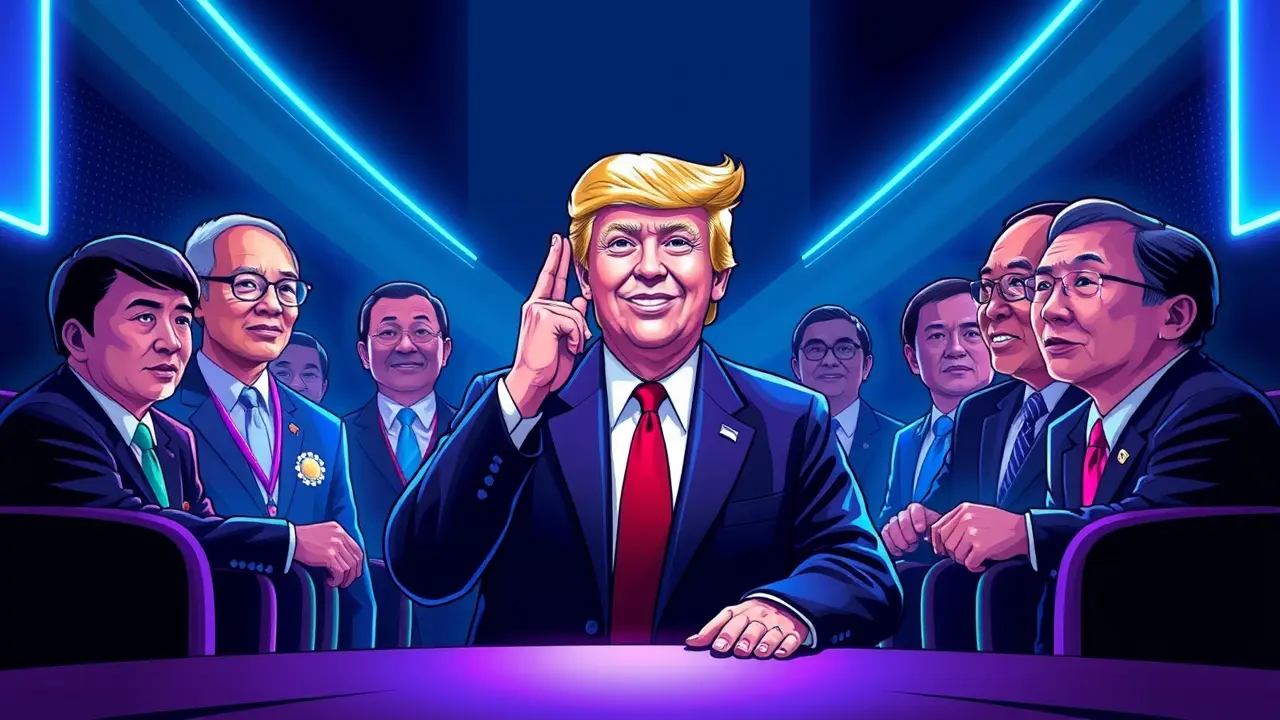
PoliticsdiplomacyMultilateral Summits
Trump Prioritizes Personal Agenda at ASEAN and APEC Summits
MA
Mark Johnson
2 days ago7 min read
Donald Trump's whirlwind tour through the ASEAN and APEC summits played out like a masterclass in political theater, where the American president consistently prioritized his personal brand of diplomatic showmanship over substantive multilateral engagement. Watching Trump work the room—exchanging hearty handshakes with Asian leaders, flashing his trademark grin at cameras, and positioning himself as everyone's favorite negotiating partner—felt less like traditional statecraft and more like a high-stakes campaign rally staged on the global platform.This approach, while potentially galvanizing for his domestic base back home, effectively sidelined the critical economic and political cooperation these forums were designed to foster. The ASEAN summit, traditionally a venue for nuanced dialogue on regional security and trade integration, was instead dominated by Trump's bilateral deal-making, a tactic that echoes the playbook of a political strategist focused on immediate, tangible wins rather than long-term strategic alliances.Similarly, at APEC, where member economies typically grapple with complex issues like supply chain resilience and digital trade standards, the American delegation seemed primarily interested in photo opportunities and promoting the President's 'America First' narrative. This isn't just a shift in tone; it's a fundamental recalibration of US foreign policy, moving away from the institution-building that characterized post-World War II American leadership and toward a transactional, personality-driven model.Historical parallels can be drawn to other charismatic leaders who used international summits for domestic propaganda, but Trump's method is uniquely modern, leveraging the spectacle for real-time media consumption. The consequences are profound: allies in the region are left questioning American reliability, creating a power vacuum that rivals like China are all too eager to fill.Expert commentators from various think tanks have noted that this style, while effective for short-term political maneuvering, erodes the trust necessary for tackling collective challenges such as climate change or pandemic response. It’s a high-risk strategy, turning diplomacy into a performance, and the long-term geopolitical fallout—weakened alliances, diminished US influence, and a more fragmented international order—may far outweigh the temporary boost in the polls.
#diplomacy
#international cooperation
#ASEAN
#APEC
#US foreign policy
#Donald Trump
#editorial picks news
Stay Informed. Act Smarter.
Get weekly highlights, major headlines, and expert insights — then put your knowledge to work in our live prediction markets.
Related News
© 2025 Outpoll Service LTD. All rights reserved.













